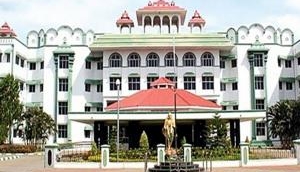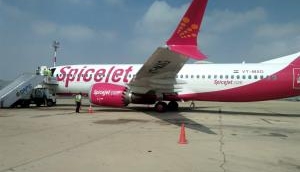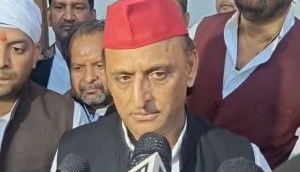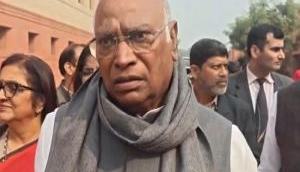
In what appears to be a landmark development, the Narendra Modi government on 3 August signed an historic Naga peace accord with northeast-based insurgent group National Socialist Council of Nagaland - Isaac-Muivah (NSCN-IM).
The pact was signed in the presence of the Prime Minister, Home Minister Rajnath Singh and National Security Adviser Ajit Doval by the outfit's leader T Muivah and government's interlocutor R N Ravi at the PM's residence here.
The signing of the pact is the culmination of over 80 rounds of negotiations that spanned 16 years with first breakthrough in 1997 when ceasefire agreement was sealed.
While the NSCN-IM is the biggest Naga rebel group which has been maintaining the ceasefire, another faction led by S S Khaplang continues to indulge in violence and was believed to be behind the deadly attack on army in Manipur in June that left 18 soldiers dead and 18 injured.
It was not immediately clear whether the agreement meets the main demand of NSCN-IM for integration of all Naga-inhabited areas in the North East across Manipur, Arunachal Pradesh and Assam.
Details and execution plan within this framework agreement will be released shortly, official sources said after the accord in which Doval played the central role.
Describing the accord as "historic", Modi said, "Today, we mark not merely the end of a problem, but the beginning of a new future."
He added, "We will not only try to heal wounds and resolve problems, but also be your partner as you restore your pride and prestige."
Muivah said the government and Nagas were entering a "new relationship" but added that "beginning from now, challenges will be great."
Before the agreement was signed, Modi spoke to leaders of various parties including Congress President Sonia Gandhi, former Prime Minister Manmohan Singh, Congress' Mallikarjun Kharge, SP chief Mulayam Singh Yadav, BSP's Mayawati, NCP supremo Sharad Pawar and CPI(M) general secretary Sitaram Yechury.
He also spoke to West Bengal Chief Minister Mamata Banerjee, her Tamil Nadu counterpart J Jayalalithaa besides the Nagaland Governor Padmanabha Acharya and Chief Minister T R Zeliang. He also called up DMK leader M Karunanidhi and JD(S) leader H D Deve Gowda.
"Today's agreement is a shining example of what we can achieve when we deal with each other in a spirit of equality and respect, trust and confidence; when we seek to understand concerns and try to address aspirations; when we leave the path of dispute and take the high road of dialogue. It is a lesson and an inspiration in our troubled world," the Prime Minister said at the signing ceremony.
Terming the six-decade-old Naga problem as a contribution of the colonial rule, he said, "it is one of the tragedies of Independent India that we have lived with this legacy."
He said there were not many like Mahatma Gandhi, "who loved the Naga people and sensitive to their sentiments. We have continued to look at each other through the prism of false perceptions and old prejudices."
"The Naga political issue had lingered for six decades, taking a huge toll on generations of our people," the Prime Minister said in an apparent reference to the violence which has claimed over 3000 lives since Independence.
"Unfortunately, the Naga problem has taken so long to resolve because we did not understand each other... Today, as you begin a new glorious chapter with a sense of pride, self-confidence and self-respect, I join the nation in saluting you and conveying our good wishes to the Naga people," Modi said.
Muivah appreciated Modi's "vision" and "wisdom" and said Nagas "can be trustworthy".
He mentioned that the peace moves were first initiated by the then Prime Minister Narasimha Rao when the outfit gave a commitment about ceasefire. Then the outfit leaders had held talks with Prime Minister Atal Bihari Vajpayee in 2001.
Modi said the problem was a "legacy of the British Rule" and "the colonial rulers had, by design, kept the Nagas isolated and insulated."
He said they had "propagated terrible myths about Nagas in the rest of the country" and "deliberately suppressed the reality that the Nagas were an extremely evolved society".
The Prime Minister said "negative ideas" were also spread about the rest of India amongst Naga people. "This was part of the well known policy of divide and rule of the colonial rulers," he said.
He said he had the "deepest admiration for the great Naga people for their extraordinary support to the peace efforts" and complimented the NSCN-IM for maintaining the ceasefire agreement for nearly two decades, with a sense of honour that defines the great Naga people.
-PTI







![BJP's Kapil Mishra recreates Shankar Mahadevan’s ‘Breathless’ song to highlight Delhi pollution [WATCH] BJP's Kapil Mishra recreates Shankar Mahadevan’s ‘Breathless’ song to highlight Delhi pollution [WATCH]](https://images.catchnews.com/upload/2022/11/03/kapil-mishra_240884_300x172.png)

![Anupam Kher shares pictures of his toned body on 67th birthday [MUST SEE] Anupam Kher shares pictures of his toned body on 67th birthday [MUST SEE]](https://images.catchnews.com/upload/2022/03/07/Anupam_kher_231145_300x172.jpg)






